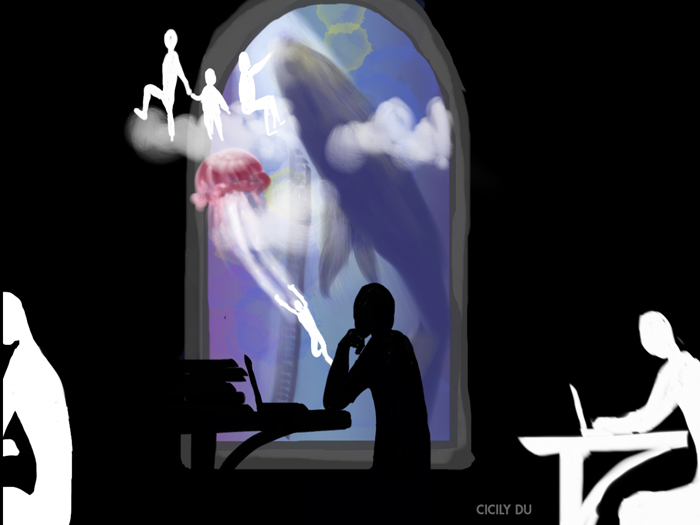It’s a Friday night, and a midnight deadline looms ahead. At 11:55 p.m., many students race against the clock to submit their assignments. Perhaps they’re scolding themselves for having again left homework to the last minute, or reflecting on the countless times this has happened before.
More often than not, students are bombarded by articles and memes that condemn procrastination, whether it be in our academic or daily lives. Putting off important tasks is nothing new: Even Socrates theorized about the reasons behind the human tendency to postpone.
But not all hope is lost. Students and professors can actually view their tendency to procrastinate as beneficial rather than dysfunctional—research in the field of organizational behaviour has indicated that procrastination might actually have positive effects on both attitude and performance.
A study published by Jin Nam Choi, a former assistant professor at the Desautels Faculty of Management who is now a professor of organizational behaviour at Seoul National University, examined how certain types of procrastinators experience positive outcomes equal to those of non-procrastinators.
In an interview with the Social Behavior and Personality Journal (SBP Journal), Choi distinguished between passive and active procrastinators, who differ in their use and perception of time, motivational orientation, stress-coping strategies, and personal outcomes.
“Active procrastinators tend to make intentional decisions to procrastinate because they love time pressure or pressing performance context, and they ultimately produce satisfactory results even when they leave many tasks until the last minute,” Choi explained.
When faced with an upcoming deadline, active procrastinators turn their stress into motivation—a tactic that Choi says essentially immunizes them from the difficulties that passive procrastinators, deal with.
Passive procrastinators, on the other hand, are unintentional procrastinators, and become paralyzed by their inability to make decisions quickly and as a result postpone crucial tasks.
When asked about his procrastination research, Choi said that the idea was spurred by self-reflection.
“I felt uncomfortable single-mindedly blaming procrastination as a self-handicapping behaviour because I regard myself as a procrastinator of many things,” Choi said to SBP Journal. “Thus, based on my own internal reflection, I introduced [the] new concept [of] active procrastination.”
In an email to The McGill Tribune, Choi suggested that active procrastinators experience a period of increased reflection that may spur creativity.
“Active procrastination may allow [individuals] extra time and opportunities to reflect on the given challenge, thus increasing the possibility of coming up with unconventional, innovative solutions, rather than resorting to immediately available standardized, typical approaches,” Choi wrote.
The results of the study indicated that although active procrastinators engaged in the same amount of postponement as passive procrastinators, they exhibited a better control of their time and greater self-efficacy. Choi also found that actively procrastinating did not have an effect on quality of the work produced.
Further research in the field has corroborated that postponing work may be equally as productive, or unproductive, as completing it in advance.
“Pre-crastination” is a psychological phenomenon describing the tendency to complete tasks far ahead of deadlines, just for the sake of having them done. Studies with university students have demonstrated that pre-crastinators expend a greater amount of energy when hurrying to complete their tasks than active procrastinators. So while neither strategy is sure to yield positive productivity, a balance between the two must be struck.
Choi also believes that active procrastination should be viewed in a more positive light.
“Active procrastination is a critical time management skill […] that made my own academic career successful,” Choi wrote. “[This tool] is helpful in dealing with multiple issues with different urgencies.”









